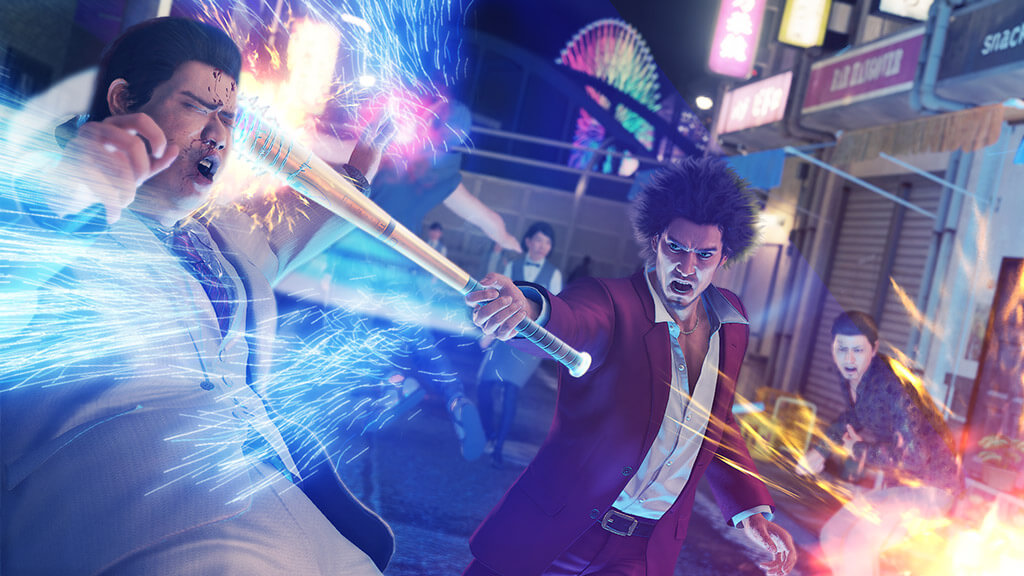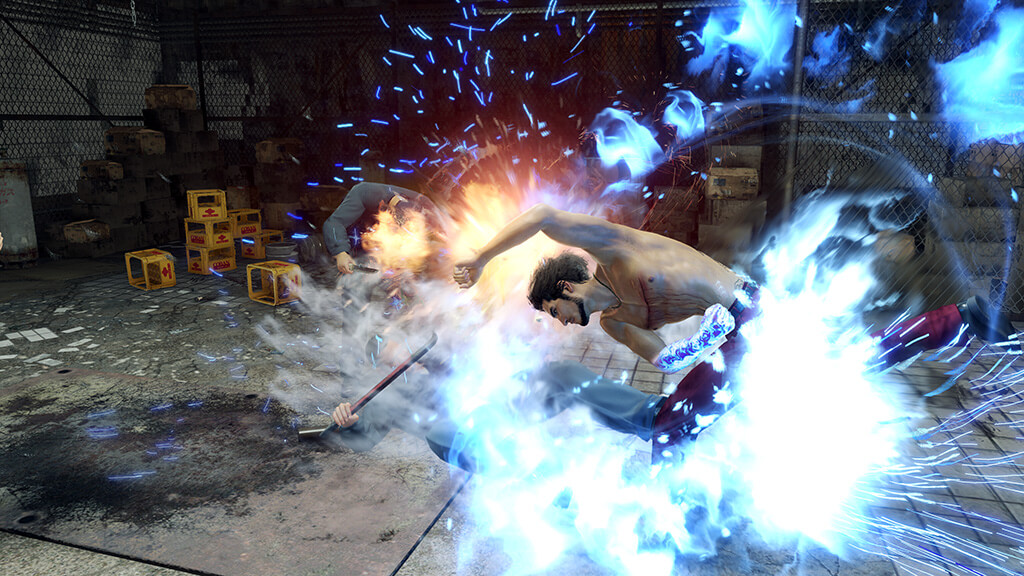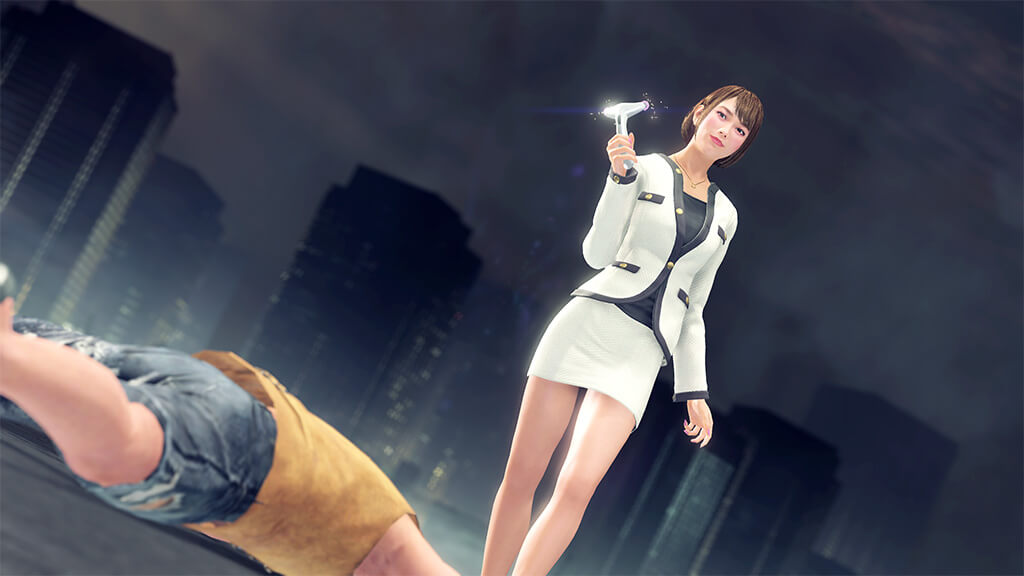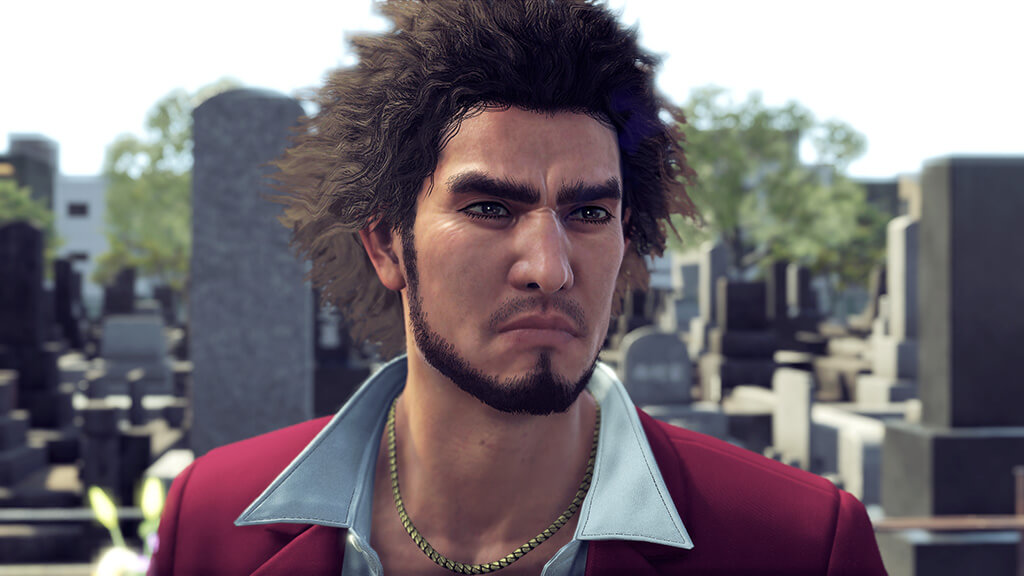Tom's Guide Verdict
Yakuza: Like a Dragon proves that, the more the franchise changes, the more it stays the same — effortlessly excellent.
Pros
- +
Endearingly ridiculous
- +
Detailed world design
- +
Fun JRPG mechanics
- +
Lots of quality content
Cons
- -
Some mandatory filler missions
- -
Uneven difficulty curve
- -
Underwhelming endgame
Why you can trust Tom's Guide
EDITOR'S NOTE: Yakuza: Like a Dragon won "best characters in the Tom's Guide Awards 2021 for gaming.
Yakuza: Like a Dragon isn't a perfect game; far from it. But it's arguably the most energizing, exciting title to come out in 2020. There's no other game on the market quite like it, aside from previous Yakuzas. Want a crime-filled soap opera, or a self-guided tour of Japan, or the chance to fight bears and tigers alongside musicians and latex-clad dominatrixes? Yakuza: Like a Dragon offers all of those things and much, much more. It's less a game and more an experience: one that's dying to treat new players to their first dose of Yakuza chaos, and just as eager to give old fans what they've been waiting for. Read our full Yakuza: Like a Dragon review for more details.
- PS5 review: The future of console gaming is here
- Xbox Series X review: The ultimate Xbox is here

Yakuza: Like a Dragon review: Gameplay
Yakuza: Like a Dragon is the seventh "main" Yakuza game, and it shakes up the series in a lot of ways. Previous games starred protagonist Kazuma Kiryu and took place in the fictional Tokyo red-light district Kamurocho: a setting with enough personality to essentially be its own character. Like a Dragon, though cognizant of Kiryu and Kamurocho, focuses on a new dynamic duo: bottom-tier Tojo Clan member Ichiban "Ichi" Kasuga and the Yokohama district of Isezaki Ijincho. The new character and setting are refreshing, but their quirky, colorful DNA will be immediately familiar to series fans.
There is one thing that greatly distances Ichiban from Kiryu, though: relatability. Whereas Kiryu was the stoic Clint Eastwood-esque alpha male archetype, Ichi is a hard worker and positive spirit. He's an optimistic and energetic change of pace from the impassive Kiryu.
Speaking of changes of pace, know that Like a Dragon is a Japanese role-playing game (JRPG), which is a far cry from Yakuza's usual beat-'em-up fare. However, even as a JRPG, Like a Dragon's mechanics are clearly cut from the same cloth as a traditional brawler, as evidenced by the inclusion of quicktime events, reflex-based blocking, improvised environmental attacks and other elements that add a little Yakuza-flavored spice.
Fights have an addictive rhythm to them, and almost overwhelm the player with tactical options and flashy attacks. This makes Like a Dragon just as engaging as the hands-on scuffles of previous Yakuzas. I always viewed the series' somewhat clunky brawler combat as little more than a time-killing vehicle for its wild storytelling, but Like a Dragon has flipped the script on me. With the series reinvented as a JRPG, I see the seeds of genuinely enjoyable gameplay being planted.
Keep in mind, that compliment is coming from someone who generally dislikes JRPGs. Like a Dragon, unlike the Final Fantasies and Dragon Quests of the world, eases players into the genre and smothers them with enough visual wonder to make the main activity of JRPGs — scrolling through menus — engaging and entertaining.

Yakuza: Like a Dragon review: Level grinding
My only gameplay complaint stems from Like a Dragon's inclusion of the most obnoxious JRPG trope ever — mandatory level grinding. In previous Yakuzas, if all you cared about was the story, you could barge right through it. In Like a Dragon, you cannot, thanks to random appearances by high-level enemies periodically halting forward progress.
There's nothing worse than making it through a lengthy story mission without issue, only for the tail end of it to feature a high-level boss who can brush off knives, pistols and rocket launchers, all because an arbitrary number imbues them with godly strength. I wish the game had "recommended level" indicators ahead of each major mission to prevent these time-wasting surprises, some of which basically force the player to reload old saves.
For those who want to grind levels in order to avoid power disparities, there aren't many good places to do so. After you pass the halfway point of the game, you unlock an "optional" thirty-floor tower where you can grind characters' levels, but it's so short that you'll have to replay the same floors over and over to reap real results.
The endgame, which requires you to level-grind in a literal sewer, is even less engaging. It's a shame that developer Ryu Ga Gotoku Studio felt the need to water down an otherwise unusually well-paced, high-octane JRPG with such obvious padding, especially since the endgame and postgame content don't properly reward or justify the grind.

Yakuza: Like a Dragon review: Story
Returning fans will feel right at home with Yakuza: Like a Dragon's story. For newcomers, expect every organized crime movie cliché imaginable. There are betrayals, corrupt cops and government officials, internal yakuza conflicts and coup attempts — you get the idea.
All Yakuza games basically share the same five plot points and just reshuffle them at random, and Yakuza: Like a Dragon is no different. Its story is chock-full of eye-roll-inducing twists, MacGuffins, and even a few plot holes. On paper, these things should not amount to a compelling narrative. But for the seventh time (not counting the excellent prequel or spinoffs), Yakuza sticks the landing and manages the impossible. The story is campy, dramatic, heartwarming and surprisingly timely. It also has incredible late-game fan service, and, on the whole, convincingly passes the mantle of series protagonist to Ichiban. It's a great ride, save for a slightly abrupt ending.
Part of what makes the story so good is its delivery, specifically its voice acting. Both the Japanese and English casts are excellent. I found myself bouncing between dubs and subs every chapter just to hear both casts' takes on events, since their performances paint vastly different pictures of characters' personality nuances. Some players might prefer English Ichiban over Japanese Ichiban or vice versa simply because of the ways that their voice actors emote. I will say that having George Takei in the English camp does sweeten the pot for Westerners who don't know Japanese, and don't want to read subtitles.

Yakuza: Like a Dragon review: Verdict
In this Yakuza: Like a Dragon review, we've discussed how the game is, all in all, great. Barring the time spent grinding to counter random difficulty spikes, I had fun for virtually the entirety of my forty-hour run, in which I cleared the story, completed the majority of substories (Yakuza's side missions) and became king of the game's business management simulator.
And there are still lots of side activities to be done! You can go to school and be quizzed on your knowledge, Jeopardy-style, compete in eco-friendly recycling races, and much, much more. The game is rich with memes and fun, and as long as you can forgive some padding in the main story, the overall package is killer. If you want to get more than your money's worth in raw content and entertainment value, no game in 2020 fits the bill as well as Yakuza: Like a Dragon.
As an aside, Yakuza: Dead Souls is still available — but you may not want to play it.
Robert Carnevale is a News Editor at Windows Central. In the past, his work has appeared on other sites, such as Tom's Guide, Tom's Hardware, Laptop Mag, MSN, Wired, Looper, and more. Also an author, he has written a novel, Cold War 2395. He loves Sci-Fi and Sonic The Hedgehog.


